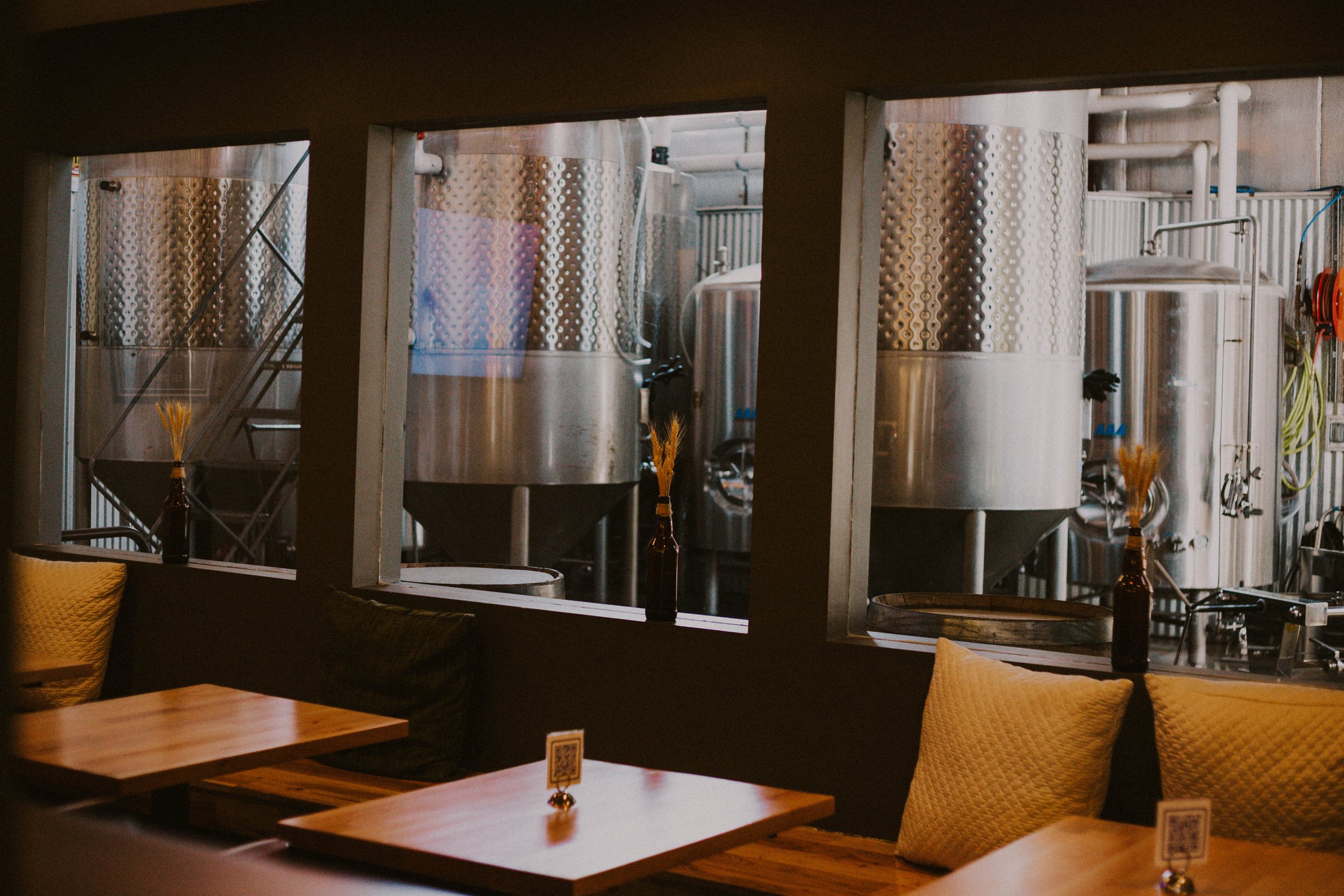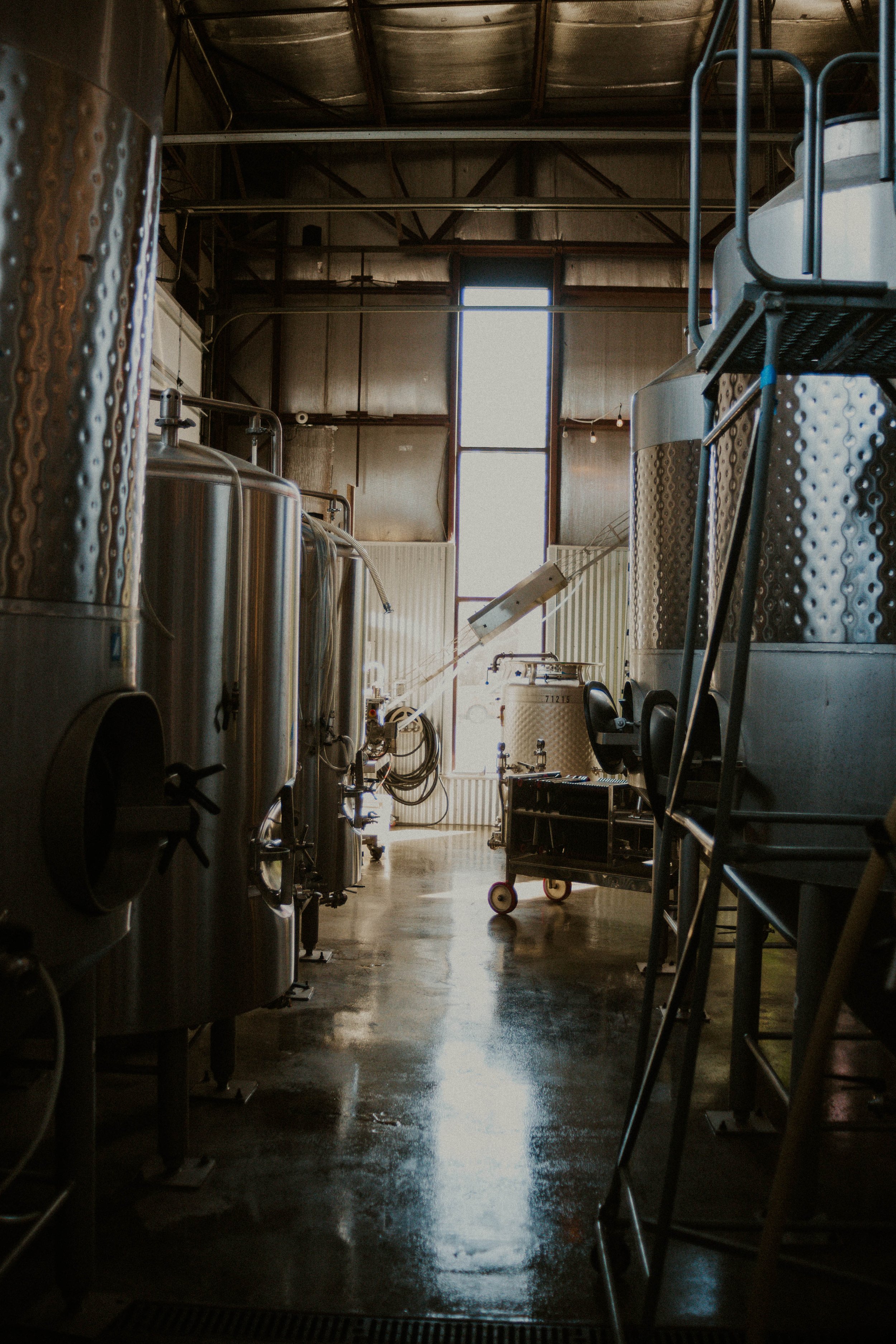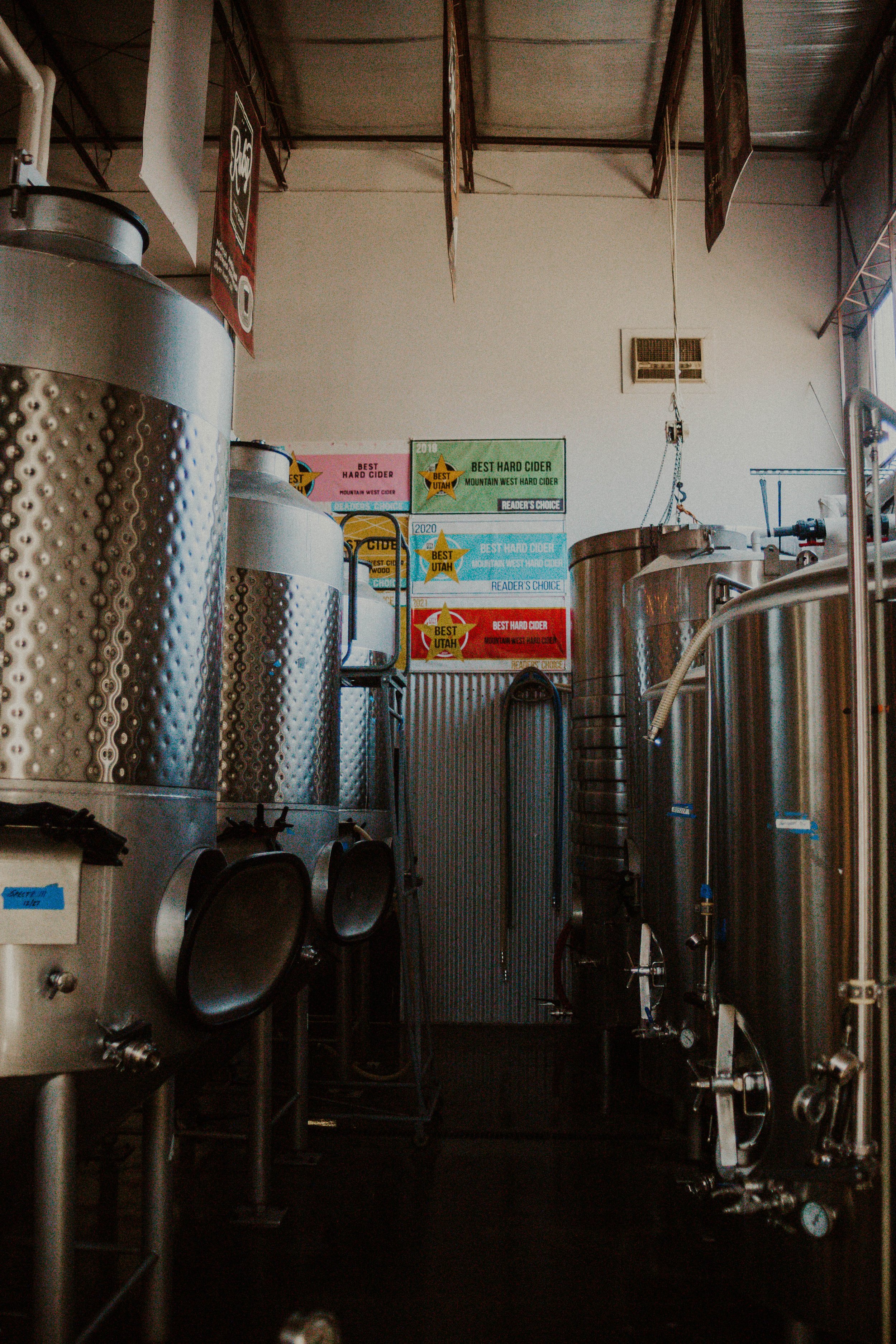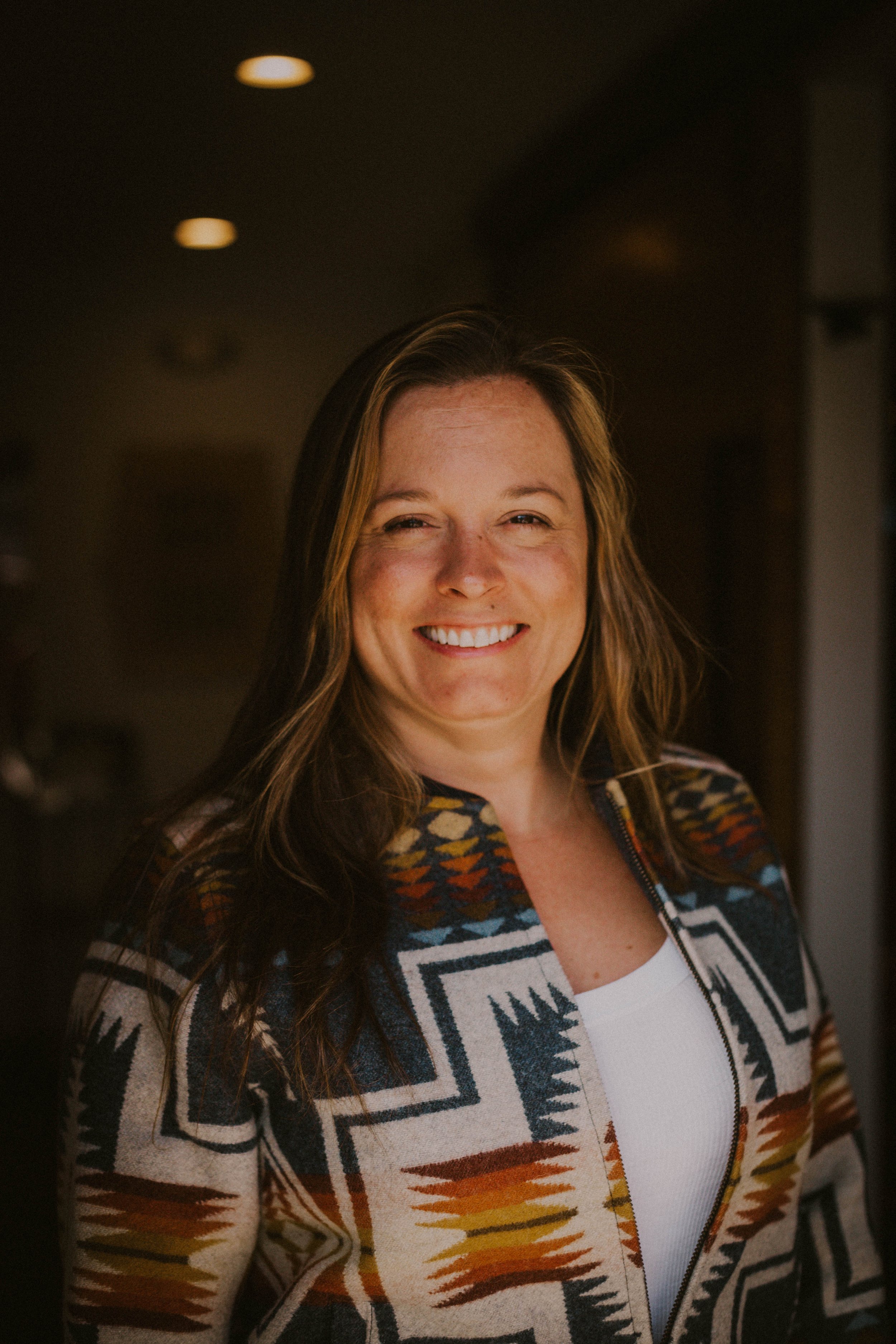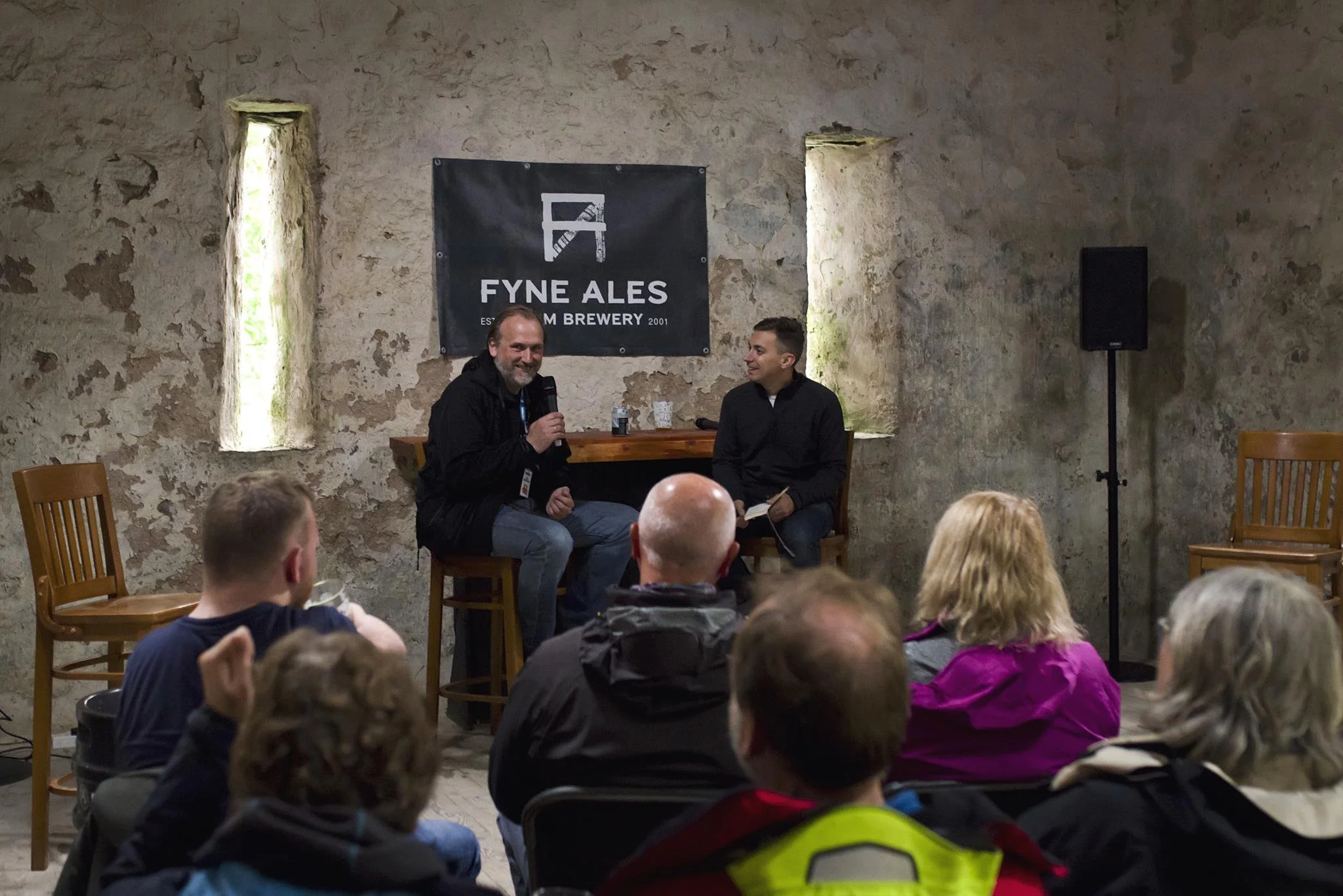The Fruit Frontier — Mountain West Cider in Salt Lake City, Utah
When I mention that my family is from Utah, I almost invariably get the same reaction:
“So… are you Mormon?”
Utah’s history is intertwined with the predominance of The Church of Jesus Christ of Latter-day Saints (LDS)—or Mormon Church—whose followers, including some of my ancestors, began settling in the Salt Lake Valley in 1847.
Because the Church’s strictures include a ban on alcohol, Utah has some of the most restrictive liquor laws among U.S. states. So Salt Lake City isn't the first place you'd think of to find a distillery—let alone a cidery, as cider's popularity is just taking off in the U.S. But Mountain West Cider has been carving out a niche since 2015 as the first dedicated cidery in the state.
Photography by Laura Chapman
Husband and wife Jennifer (Jen) and Jeff Carleton first got interested in cider after a trip to Ireland in 2008 opened their eyes to possibilities beyond beer.
“I found traditional dry cider, fell in love with it, and came back here to the States, where being able to find good dry cider was almost impossible,” Jen recalls. After a few years of research, and a move to Salt Lake, they enlisted Joel Goodwillie to become Mountain West’s cidermaker. Joel brings his expertise to the cider, Jeff oversees production, and Jen does the company’s marketing in a balanced trifecta.
While Utah’s cider scene is still in its infancy, it’s rapidly growing, helped by Mountain West’s trailblazing through Utah’s byzantine liquor laws. “It’s been exciting, being the first,” says Jen, though it has also entailed a lot of work “making changes to regulation…and making the state a little more cooperative when it comes to hard cider manufacturing.” (In the U.S., “hard cider” distinguishes the alcoholic drink from “cider,” the drink known in the UK as apple juice. Filtered and pasteurised American apple juice is, in turn, a pale shadow of that.)
Utah has eased some of its alcohol restrictions in recent years, including the “Zion Curtain,” a once-required practice for bartenders to move out of patrons’ sight to prepare alcoholic drinks. But others persist: the monopoly of state-run alcohol stores, the highest tax rate on wine in the U.S., strict I.D. laws, and restrictions on alcohol by volume (ABV) and pours. Put simply, “the wackadoo liquor laws here make it really hard for people who are in the industry,” drinks writer and historian Darby Doyle explains.
Though cider tends to have a lower ABV that is closer to beer than wine, the Utah Department of Alcoholic Beverage Control (DABC) classifies it as an ‘apple wine’ and treats and taxes it accordingly. Like wines, cider pours in Utah bars are regulated to 5 ounces (around 150ml, or less than a small glass of wine in the UK). As of 2019, beer that is 5% ABV or less can be sold in Utah grocery stores, but ciders of the same ABV cannot—wines and ciders must still be purchased from state stores.
“I think the DABC is a big hassle—it’s not fair that cider gets drunk like a beer and taxed like a wine,” says David Jimenez, a brewer who runs the local brewing podcast Tastemasters. “I wish I could go to [local grocery chain] Harmons and be able to grab hard cider like I would beer.”
““The wackadoo liquor laws here make it really hard for people who are in the industry.””
The other, broader, challenge is educating American consumers that cider isn’t all one-note. Before running a winery in Washington for twenty years, Joel created Bad Seed cider in 1998. “Back then, it was just so hard to educate Americans,” he says.
“Before Prohibition, cider outsold beer, so there is a history,” Joel says. “But we’re still facing the challenge of people who don’t know a lot about cider think it's sweet. So you have to educate [people] that cider doesn't have to be sweet.”
Mountain West’s ciders are anything but. Their flagship Ruby cider, a dry, “traditional English-style” cider is a balanced blend of five apple varieties. Mountain West initially sourced all their apples from Utah but outgrew the state’s supply in their first six months of production. Their apples are now sourced across the west, including Washington state, but they feature local produce like the Elliot Gold, unique to a single Utah farm, in a delicate, dry, and moreish single-varietal cider.
“We’re trying to swath our own path,” Joel says, by experimenting with limited-run flavours like peach turmeric and avocado lime. He’ll “pick the strangest ingredients” to throw into a five-gallon carboy; the staff taste and decide by committee which flavours pass the test.
“We’ve messed around with everything from cherry vanilla to Orange Creamsicle,” he says. Joel’s latest experiments involve accentuating the heat of peppers with fruits like mango and plum.
Joel says he doesn’t miss the farming stresses of his winemaking days, and that, in fact, they’re not over: “Cider[making] and winemaking are the same thing— It’s rotting fruit.” A batch of cider can be fermented in 3-4 weeks, although Mountain West also makes ciders that are barrel-aged for up to two years.
While Joel sees Utah “starting to change a little more…the liquor laws are still ridiculous…Utah doesn’t know that the rest of the world just laughs.” The limits on purchasing locations and pours certainly hamper cider’s growth. “I think that is how to enjoy cider—on draft, in a pint glass. But nope, not here in Utah!”
Still, Jen is optimistic: “we're pretty nimble, the entire industry here is, and we all work together and find ways to operate and be successful even given the regulations that we face.” Darby also emphasises the uniquely small and cooperative world of the Utah booze industry: “everybody knows each other, and I think that spirit of camaraderie definitely comes through.”
Kate Lubing, co-owner of Hans Kombucha, attests to this, calling Jen, Jeff and Joel “exceptional…advocates for small business in the city.” As Hans grew their operations, they moved into a corner of Mountain West’s cidery. “We’ve become a family with them, and they’ve helped us grow tremendously. They taught us a lot about larger-scale commercial operations…and better prepared us for our move to [our own brewery in January 2022],” Kate says.
““I think that is how to enjoy cider—on draft, in a pint glass. But nope, not here in Utah!” ”
For Jen, it’s about the reciprocity of community. “We recognise that if we support the community, this community is going to support us. We wouldn’t be here if it wasn’t for them.” This means partnering with fellow brewers as well as groups that promote local produce and sustainable food systems, like Utah’s Own and Green Urban Lunchbox. Celebrating Utah’s environment is part of Mountain West’s ethos: their flagship ciders are named after local canyons, and proceeds from their prickly pear cider go to an environmental protection group.
They also release a limited edition Ruby’s Gay cider each Pride Month, with proceeds supporting the queer community through the Utah Pride Center. These initiatives developed when “we found that we had a platform with Mountain West,” Jen explains, “and the ability to raise awareness for organisations that we appreciate and couldn't survive without in the state.”
“A lot of businesses will get on board with their local [nonprofits] for face value or brand recognition—they do it for all the wrong reasons,” Kate says. “But the reason that these guys do it is because…they genuinely believe in these things. They live and breathe community.”
“One of the really cool things that they've done is make the beer garden-esque, cider garden atmosphere for community outside,” Darby tells me. Located next door to the cidery, the garden also hosts live music events. “The atmosphere’s beautiful and dog-friendly. They accept all peoples of all thoughts and [genders] and races,” David says. “You can’t not go into Mountain West and come out [feeling] awesome.”
In 2018, the LDS population of Salt Lake dropped below the majority for the first time. And although Utah remains predominantly white, demographics have shifted as younger and more diverse people have immigrated to the state. Joel’s previous assumptions about Salt Lake’s monolithic conservatism were overturned when he moved: “The Pride culture here’s amazing,” he says. “I beamed when I first saw that.”
Last autumn, Salt Lake’s first queer bookstore opened, and a homegrown queer/trans community initiative started hosting weekly potlucks that make the city feel more warm and welcoming than I’ve felt in all my years of returning. A plethora of Pride flags can also be spotted around town each June. However, some were torn down from local queer-owned businesses last year—the same month the Salt Lake County Council pointedly banned flying any but state and national flags from government buildings.
Having lived over a decade in Salt Lake, “I think that there’s been certainly an ebb and a flow” to progress, Kate says. “It’s an interesting state, having the Church influence. Being a[n alcoholic beverage] control state has come with a tremendous amount of challenges…but we also, because of that, are stronger as a community because we do have to work together.”
This community of great brewers and cidermakers like Mountain West are challenging hackneyed perceptions of Utah, which is growing in ways unimaginable just a few decades ago. The cider scene is expanding: in the past year, a new cidery and a cider-focused bar opened, which may further tip the scales towards changes in how cider can be served and purchased in the state.
It seems that more people are catching on to the long-neglected possibilities of cider in the U.S.—and catching on to the quirky, fruitful landscape of Utah.









